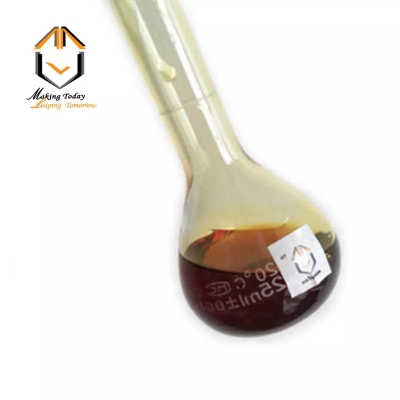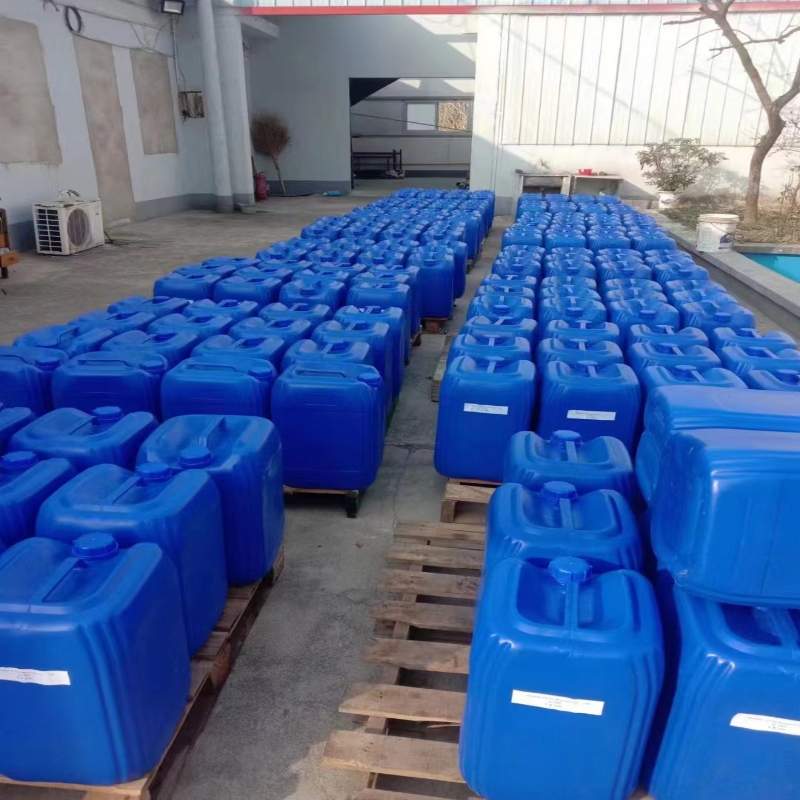-
Categories
-
Pharmaceutical Intermediates
-
Active Pharmaceutical Ingredients
-
Food Additives
- Industrial Coatings
- Agrochemicals
- Dyes and Pigments
- Surfactant
- Flavors and Fragrances
- Chemical Reagents
- Catalyst and Auxiliary
- Natural Products
- Inorganic Chemistry
-
Organic Chemistry
-
Biochemical Engineering
- Analytical Chemistry
-
Cosmetic Ingredient
- Water Treatment Chemical
-
Pharmaceutical Intermediates
Promotion
ECHEMI Mall
Wholesale
Weekly Price
Exhibition
News
-
Trade Service
Core reading
Since the end of World War II, the United States has frequently launched foreign wars, overthrown other regimes or created divisions
.
Analysts point out that an important reason why the United States is so belligerent is to rob strategic resources such as oil and maintain the dominance of the dollar in the world
.
British international relations scholar Brent Gocauy pointed out that the reason why the United States is unscrupulous is not just to seize oil reserves, but to maintain its global hegemony
.
For some time, the United States has stolen oil from Iraq and Syria, confiscated Afghan dollar assets, and frequently brandished sanctions to freeze the assets of other countries in the United States, which has attracted widespread criticism
from the international community.
U.
S.
Vice President Harry S.
Harris once declared: "For many years, generations of Americans have been fighting
for oil.
Harris's words speak of the economic motives of the United States for repeatedly waging foreign wars
.
Minister of Economy and Foreign Trade of Syria -
"To this day, Syrian oil and gas fields remain under U.
S.
control and plundered by U.
S.
companies.
"
In early May, a convoy of 50 vehicles traveled from eastern Syrian province of Hasakah to the Syrian unofficial port of Walid
.
The convoy was guarded by 8 military armored vehicles
illegally stationed by the United States in Syria.
According to Syrian media reports, most of the 50 vehicles in the convoy are tanker trucks, which are filled with oil
stolen by the US military from the oil fields in Syria's Hasakah province.
Back in 2019, Syrian President Bashar al-Assad accused the United States of "stealing oil"
from Syria.
Last October, Syrian Minister of Economy and Foreign Trade Samir Khalil said Syria's oil and power sectors were two of the hardest hit by economic losses since the crisis erupted, and that "to this day, Syria's oil and gas fields remain under U.
S.
control and plundered by U.
S.
companies.
"
Syrian Minister of Petroleum and Mineral Resources Basam Tuma said that the United States currently controls 90% of the crude oil resources in northeast Syria and is frantically plundering the local rich oil resources, resulting in a total loss of more than $92 billion in the country's oil industry
.
In October 2019, then-U.
S.
President Donald Trump acknowledged at a public event that U.
S.
troops remained in Syria for oil
.
"We want to keep the oil, keep that in mind
," he said.
He even said he was interested in striking deals with energy companies to tap Syria's oil reserves
.
James Stewart, a law professor at the University of British Columbia in Canada, argues that plundering oil resources without the consent of the owners is a war crime
.
The Syrian government has neither invited nor authorized the US military to carry out relevant operations on Syrian territory, "natural resources are not unowned property, and no armed organization can enter another country and expropriate local natural resources.
"
Russian Defense Minister Shoigu pointed out that the United States is enriching its own oil producers and arms dealers
by plundering the oil resources belonging to the Syrian people.
Russian expert Igor Yushkov said that the reason why the United States is reluctant to withdraw from northern Syria is to plunder Syrian oil resources
.
They use the armed forces to defend oil smuggling and retaliate against any action to stop smuggling
.
The U.
S.
-led coalition forces have also smuggled Syrian wheat
on several occasions.
According to the Syrian Arab News Agency, the US occupying forces colluded with local Syrian militias to steal Syrian oil and food every day, and then sold it in exchange for funds
.
Deputy Spokesperson of the Interim Government of Afghanistan —
"The richest countries steal money from the poorest countries, which exposes the dark moral character of the United States"
The United States often embezzles assets
of other countries in the name of sanctions.
In 2019, the United States froze all the assets of the Venezuelan government in the United States and also supported the Venezuelan opposition
by increasing sanctions.
In February, U.
S.
President Joe Biden formally signed an executive order to "allocate" $3.
5 billion from the $7 billion of Afghanistan assets frozen by the United States to compensate the families
of the victims of 9/11.
Since the Russian-Ukrainian conflict, the United States has greatly escalated its financial sanctions against Russia, including freezing the assets
of large Russian state-owned financial institutions in the United States.
The $7 billion embezzled by the United States belongs to Afghanistan's central bank, including cash, bonds and gold, much of it from foreign exchange
accumulated by Afghanistan over the past 20 years.
About $500 million of this asset is the reserves of several commercial banks in Afghanistan, including the deposits
of ordinary Afghans.
Samangani, deputy spokesman for the Afghan interim government, said: "Afghanistan is facing serious economic problems
.
The richest countries steal money from the poorest countries, exposing America's dark moral character
.
”
Pakistan's Permanent Representative to the United Nations, Akram, stressed that Afghanistan urgently needs this funding to restore and sustain economic development and to provide basic living facilities
, including health and education, for the Afghan people.
Mustafa Bayumi, a professor at the Brooklyn College of the City University of New York, criticized this "theft" in the United States, arguing that the US government had planned a "big scam" to control the "money that did not belong to them.
"
Boyle, a professor of international law at the University of Illinois, believes that the US government's handling of the Afghan central bank's assets in the United States is a complete theft for any reason, and they have no right to manipulate the Afghan government assets
at will.
Professor of International Relations at Keele University, UK
"The United States strengthens its strategic dominance in the Middle East by effectively controlling the 'global oil valve'"
"Oil pricing is about the hegemony of the dollar" is the consensus
of US policymakers.
The United States maintains the hegemony of the "petrodollar" through overseas military operations
.
American investigative journalist Antonia Yujas pointed out in an article that the Iraq War was an oil war, and before the outbreak of the Iraq War in 2003, Iraq's domestic oil industry was completely nationalized and Western oil companies were closed
.
After the war, Iraq's oil industry was privatized
.
Western oil companies were able to extract oil in Iraq's large oil fields and make huge profits
.
Former Iraqi Deputy Prime Minister Tariq Aziz has said that the war against Iraq is purely for oil, and that U.
S.
policy is to plunder oil
from the countries of the Gulf region.
The BBC reported that the Bush administration in the United States had a plan
to control Iraqi oil before 9/11.
Sims, a former policy director at the New Economics Foundation, a British think tank, said that over the past century, the United States and the United Kingdom have left the consequences
of conflict, social unrest and environmental destruction around the world as they seek to control oil reserves that exceed their share.
John Abizaide, who served as commander of U.
S.
Central Command during the Iraq War, said the Iraq war was "of course oil-related, and we can't deny that
.
" According to an article on the European website Modern Diplomacy, Middle Eastern countries will face the threat of war from the United States and its allies if they want to escape the
control of the dollar.
"Just think of Saddam Hussein's U.
S.
support in the Iran-Iraq War and later becoming the primary enemy when Iraq began trading oil in euros
.
"
Former Fed Chairman Alan Greenspan wrote in his memoirs: "I regret to admit that everyone knows that the war in Iraq was primarily about oil
.
Greenspan also revealed that the overthrow of Saddam's regime is a "necessary condition"
to ensure order in the world oil market.
American anthropologist Graeber points out in his book "Debt": "U.
S.
policymakers resist any change
against the 'petrodollar.
'" ”
The war has done Iraq great harm
.
According to the World Bank, after two wars in Iraq, Iraq's per capita GDP fell from $10,356 in 1990 to $4,157 in 2020
.
Despite being one of the world's leading oil producers, Iraq has become a poor country
in the Middle East as a result of war.
Brent Gocoy, a professor of international relations at Kiel University in the United Kingdom, said that Middle East oil is crucial to maintaining the global hegemony of the United States, "The United States consolidates its strategic dominance in the Middle East by effectively controlling the 'global oil valve.
'
" ”







